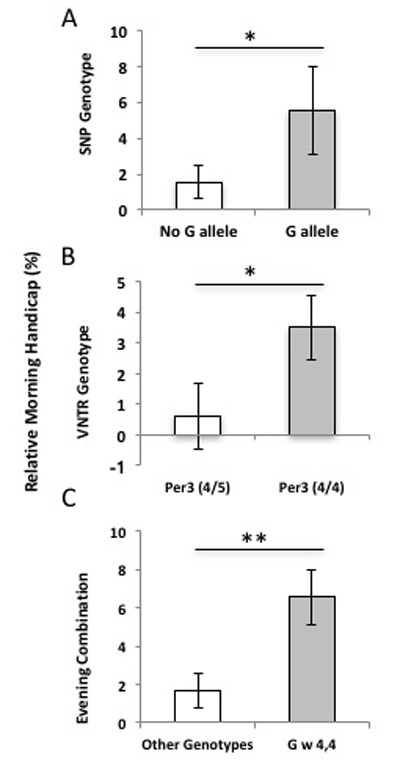Figure 2.

Influence of the PER3 SNP and VNTR polymorphisms on athletic performance. Relative morning handicap represents the average per-individual time-of-day effects (M-E/E) on athletic performance in PER3 genotypes (±SE). A) Participants with a G allele are significantly slower in the morning swim trial (Mw/G = 8.64 ± 0.024) than those homozygous for the C allele (MCC = 1.847s ± 1.140) representing an 6% decrease in morning performance in individuals with G-allele (t = 2.313, df = 23, p = 0.015). B) PER34/4 genotypes show a 3–4% slower trend in 200m swim performance, but this trend is not significant (t = 1.685, df = 23, p = 0.053). Participants with PER34/4 genotypes tend to swim nearly 5 seconds slower in the morning trials (M4/4 = 4.830 ± 1.52) compared to participants with PER34/5 genotypes (M4/5 = 0.667 ± 2.116). C) Participants with the PER3 haplotype swam 10 seconds (Meve = 10.325 ± 2.087) slower in the morning, on average, while all other genotype combinations swim only 2 seconds slower (Mother = 2.000 ± 1.129; t = 2.905, df = 24, p = 0.008), this represents an 6.5 % slower individual morning performance in athletes with both evening-type polymorphisms (t = 7.26, df = 24, p = 0.013).
